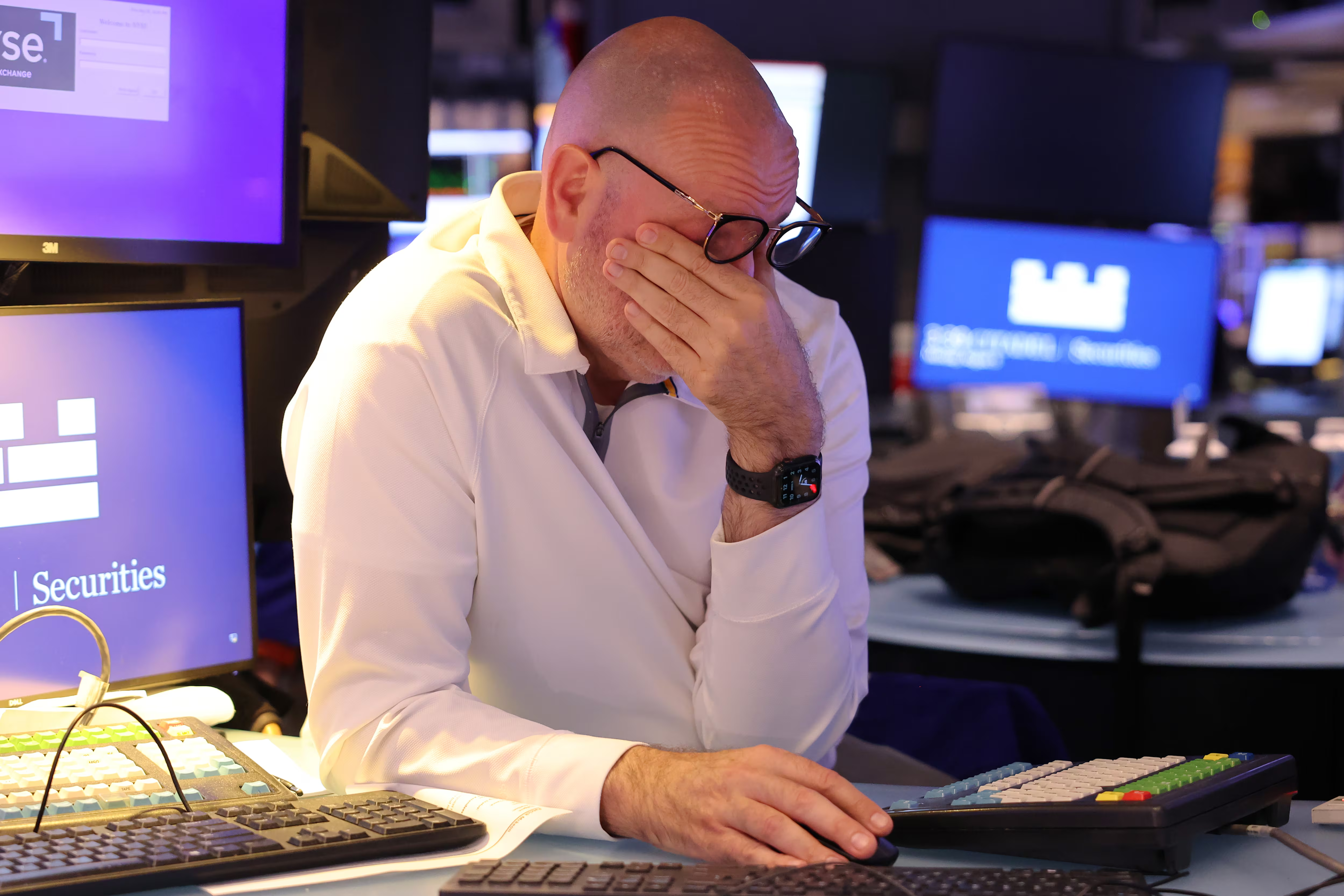Coming soon: The Great Commercial Real Estate Fire Sale
If you’ve got a lot of cash and a hunger for owning office buildings, this is a good time to buy (provided you believe that America’s workers will soon be back in the office five days a week). Nationwide, 18.3 percent of offices were vacant in April, and in San Francisco the vacancy rate was 25.9 percent, according to Commercial Edge, a real estate data service.
But let’s say you are that credulous, and you believe that work-from-home was just a passing trend, you could join the handful of opportunistic buyers who are snapping up office buildings at massive discounts. In New York, where the vacancy rate is 17.6 percent, Yellowstone Real Estate Investments paid $185 million for an office tower near Columbus Circle, a fraction of the $600 million that investment colossus Blackstone paid for it ten years earlier. So far, only a handful of these fire sales have been seen, as distressed buyers ride the plunging elevator just a little longer — but a wave of distress is clearly coming.
Interest rates are still much higher than when the buildings last changed hands, and a lot of mortgages are maturing (commercial mortgages generally last 7 to 10 years, not the 30 years of a residential mortgage). The fundamental problem is simple: “Companies that use office space are finding that they need less per worker,” Philip Mobley, national director of the real estate data firm Costar, told BBTW.
Delinquencies on commercial mortgage-backed securities (one of the debt piles that sparked the 2008 crash) are up from 1.5 percent in 2022 to 8.3 percent this April, said Mobley. Hoping the U.S. will avoid a repeat of 2008 when the mortgage debt crunch sparked the Great Recession, many landlords, investors and people holding debt on commercial real estate are hoping they can just “survive ‘til 25,” but unless interest rates plummet and you and I stop working from home, it’s going to get a lot worse.
The usual suspects:
- Elon’s World: It’s #MeToo time in X-land, as Musk and SpaceX face a fresh lawsuit from engineers alleging they were fired for speaking out about sexual harassment and discrimination against women at the starship company. The Wall Street Journal earlier reported that four women said they had had relationships with Musk while they worked at Space X. Also! Tesla shareholders approved history’s largest CEO comp package on Thursday, giving Elon $45 billion in stock and cash, or about 13 percent of Tesla, raising his stake to 20.5 percent, even as the company’s shares have tanked 25 percent this year. Tesla still has to convince a Delaware judge the award is in the company’s best interest.
- Disney has swapped out its Splash Mountain ride — based on a racist 1946 film with minstrel animals — for Tiana’s Bayou, based on “The Princess and the Frog,” Disney’s 2009 animated musical that introduced its first Black princess.
- Student Loan Groan: On July 1, monthly bills will drop for millions of people with federal student loans, with payments capped at 5 percent of discretionary income, down from 10 percent. But loan servicers decided to let the government do the calculations for them, and the backlog means some students will be placed in “forbearance” for July — a penalty-free way to say no payments are due until the new rates are set.
- Boeing’s new woes: No one ordered a new Boeing 737 Max in April or May, and the Seattle-and-Chicago-based planemaker sold just 3 planes last month amid concern over a 737 side panel blowing out in midair in January. But Boeing is far from down and out: It’s got an astonishing backlog of 5,600 orders. All it needs to do is train thousands of new workers in the fine art of aircraft construction, after many factory floor workers retired during the pandemic.
Paramount’s Last Waltz
The media business story of the year — who will own Paramount? — took an unexpected turn this week when Paramount’s controlling shareholder, Shari Redstone, walked off the dance floor.
Redstone, the nepo-mogul whose National Amusements controls Paramount Global, abruptly ended talks to sell her stakes to Skydance Media, a film company owned by David Ellison, whose dad, Larry, founded the software services firm Oracle.
Now Paramount (and National Amusements) are reportedly in talks with a slew of other suitors, including Sony Pictures (backed by private equity giant Apollo), former Warner Music and Seagrams boss Edgar Bronfman (backed by Bain Capital) and Hollywood producer Steven Paul.
Why did the talks fail? Skydance’s offer ultimately dropped the value of Redstone’s National Amusements from $2 billion to $1.7 billion, and Redstone wanted Skydance to pay the legal bills if Paramount shareholders balked at deal terms that would value Redstone’s shares more highly. It’s not clear that any of the other proposed deals will fare better, leaving open the future of Paramount’s money-losing ventures including Paramount Pictures and its streaming service Paramount+, and franchises including CBS, MTV, Comedy Central and Nickelodeon.
Steady as she goes, Captain Powell
The Federal Reserve decided Wednesday to keep interest rates steady at 5.25 to 5.5 percent, dashing the hopes of many businesses and potential homeowners that borrowing might become just a little more affordable. Yet the Fed held out the possibility of one rate cut by the end of the year. The idea is that high borrowing rates slow spending and keep inflation down. It seems to be working, but slowly, and part of that may just be that all kinds of businesses, from grocery stores and car dealers to landlords and streaming services are raising prices because they can.
“We’re looking for something that gives us confidence that inflation is moving sustainably down,” Powell said at a press conference in which he used the words confident and confidence 20 times, The Wall Street Journal reported. His Canadian and European counterparts do seem more confident. They cut rates last week even though inflation is still above their targets. “Our confidence in the path ahead, because we have to be forward-looking, has been increasing over the past months,” said European Central Bank president Christine Lagarde.
Without that confidence here, U.S. interest rates remain high. And the funny thing is, the economy is still strong: unemployment at 4 percent is relatively low. “I don’t think anyone … has a definitive answer why people are not as happy about the economy as they might be,” Powell said. But the answer may actually be in front of his nose: New mortgage rates average 7.4 percent, credit card rates are at 20 percent, and car loan rates are also stuck above 6 percent.
Turmoil at the Washington Post
Richard Nixon knew it, but maybe the message never made it across the Atlantic: It’s not the crime that’ll get you, it’s the coverup.
William Lewis, the new CEO of The Washington Post, must have forgotten that. Once an enterprising reporter at London’s muckraking Sunday Times, Lewis later helped Murdoch fight off a scandal over tapping the phones of royals and crime victims by allegedly destroying thousands of emails. When The Post covered a turn in the long-running Fleet Street scandal, Lewis told editors to downplay the story and tried to pressure NPR media reporter David Folkenflik into killing a story on Lewis’ involvement in the scandal.
Word of Lewis’ coverup efforts (they both failed) broke just as he was preparing to unveil a makeover of The Post, which has lost half its readership since 2020, and bled $77 million last year. Top editor Sally Buzbee quit before she could be reassigned to oversee the paper’s health and wellness blogs, and reporters say they don’t trust Lewis’ leadership, his new plan or his incoming editor, Rob Winnette, a British newsman.
But as Lewis told The Post’s reporters: “We are losing large amounts of money. Your audience is halved. People are not reading your stuff. I can’t sugarcoat it anymore.” But with open war in the newsroom, the ball is now clearly in Bezos’ court.
Peter S. Green is a veteran reporter and editor who has spent more than two decades covering business and finance from Eastern Europe to New York City, and has worked for Bloomberg News, The New York Post, The New York Times and The Messenger. He lives in New York City and is always looking for the next big story.













